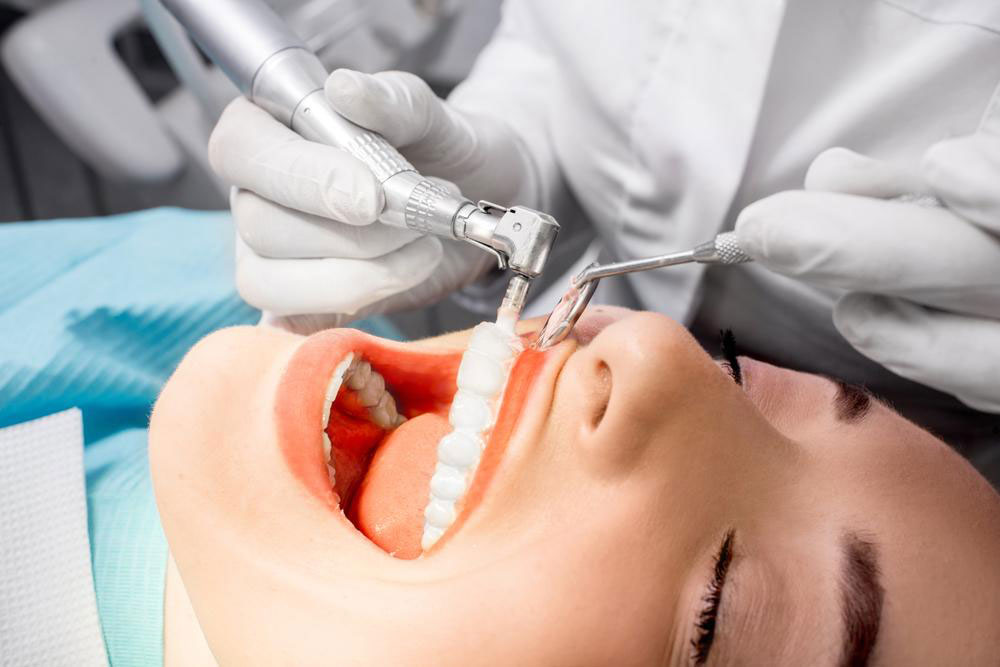Ultimate Guide to Dental Coverage Options for Seniors on Medicare
This comprehensive guide explores dental coverage options for seniors on Medicare, highlighting the limitations of traditional benefits, available supplementary insurance plans, associated costs, and top providers like Delta Dental. It empowers seniors to make informed decisions for maintaining optimal oral health and avoiding costly dental issues in retirement.

Detailed Overview of Dental Benefits and Coverage for Seniors Under Medicare
As seniors navigate the complexities of healthcare options, understanding dental coverage within Medicare becomes essential for maintaining oral health and overall well-being. Dental health significantly impacts quality of life, and many seniors face common dental issues such as tooth loss, gum disease, oral infections, or mouth cancer. Grasping the scope of Medicare's dental benefits, along with supplementary insurance options, can help seniors make informed decisions and access the dental care they need. This comprehensive guide explores the available coverage, potential costs, and practical tips for maximizing dental protection under Medicare.
Understanding Common Dental Challenges Faced by Seniors
Oral health tends to decline with age, often resulting in tooth decay, gum disease (periodontitis), and tooth loss. According to recent statistics, many seniors over 65 retain approximately 18 teeth, but these numbers can vary depending on dental history and ongoing health conditions. Additionally, seniors are at increased risk for oral cancers, mouth infections, and facial pain, which can severely impact nutrition, speech, and self-esteem. Recognizing these issues early is vital for effective management and treatment.
Despite the prevalence of these issues, many seniors are unaware of the dental benefits provided by Medicare or believe that their coverage is extensive. This lack of knowledge can lead to untreated dental problems, resulting in pain, infections, or the need for more complex and costly treatments in the future. Therefore, understanding what Medicare covers and exploring additional insurance options is crucial for maintaining oral health in later years.
Medicare's traditional benefits are primarily geared towards hospital and acute care, with limited coverage specifically for routine dental procedures. According to the Centers for Medicare & Medicaid Services (CMS), Medicare Part A mainly covers inpatient hospital stays, surgeries, and certain rehabilitative services. When it comes to dental care, the coverage is highly restricted; for example, complex jaw reconstructions or dental surgeries resulting from accidents can be covered, but routine dental exams, cleanings, fillings, or dentures are generally excluded under Original Medicare.
For seniors seeking more comprehensive dental coverage, Medicare Advantage plans (Part C) might offer additional benefits, including preventive dental services such as cleanings, exams, and X-rays. It's important to review individual plan details, as coverage varies among private insurers approved by Medicare. Consulting with a Medicare advisor or a licensed insurance broker can help identify plans that best suit your dental health needs.
Alternative Dental Insurance Options for Seniors
While Medicare's core benefits do not fully cover routine dental procedures, seniors can purchase standalone dental insurance plans to fill this coverage gap. These policies, often called supplemental or standalone dental plans, can be tailored to meet specific needs and budgets. Popular options include Preferred Provider Organization (PPO) plans and indemnity plans, which allow flexibility in choosing providers and receiving care from out-of-network dentists at additional costs.
In metropolitan areas such as New York City, numerous reputable dental providers offer such insurance plans. Notable providers include NYC Dental Center, NYC Smile Spa, and The Center for Special Dentistry. These plans typically have a network of dental providers offering discounted rates, and they cover a wide range of services, including preventive, restorative, and cosmetic dentistry.
It’s important to understand the distinction between in-network and out-of-network services. Out-of-network procedures often involve higher copayments or coinsurance, and there may be additional charges beyond the insurance limit, which seniors need to pay out-of-pocket.
The Cost Structure of Dental Insurance for Seniors
Seniors should carefully evaluate the costs associated with dental insurance plans. These costs generally include premiums, deductibles, and coinsurance. Understanding each component can help determine the most cost-effective plan for individual needs.
Premiums
The monthly premium is a fixed amount paid regardless of whether dental services are used. Premiums can vary based on the coverage level, provider, and plan features. It's advisable to compare premiums across different plans to find a suitable balance between cost and benefits.
Deductibles
The deductible is the amount paid out-of-pocket before the insurance begins to cover services. For example, if a plan has a $50 deductible, the senior must pay the first $50 of dental expenses annually before coverage kicks in.
Coinsurance and Copayments
This is the percentage or fixed amount paid by the senior for specific dental services after meeting the deductible. Routine care like cleanings may be covered at 100% after a deductible, whereas more extensive procedures such as crowns, root canals, or dentures often involve coinsurance payments that seniors need to budget for.
Leading Dental Insurance Providers for Senior Citizens
Among the numerous available providers, Delta Dental stands out as one of the most trusted and widely accepted dental insurance companies in the United States. They offer a variety of PPO plans tailored specifically for seniors, including coverage for annual cleanings, dental examinations, fillings, crowns, bridges, and dental implants.
Delta Dental's network encompasses thousands of dental professionals nationwide, providing flexibility and convenience. Many plans include benefits like discounted rates for elective procedures or major restorative work, which can significantly reduce out-of-pocket expenses. After a specified period—often 12 months—enrolled seniors may enjoy coverage for procedures such as crowns and dentures at no additional cost.
In addition to Delta Dental, other reputable insurers like Cigna Dental, MetLife, and Guardian also offer senior-focused oral health plans. When selecting a plan, seniors should consider factors such as the scope of coverage, premiums, waiting periods, and provider networks to ensure they receive optimal dental care throughout their retirement years.
In conclusion, maintaining good oral health is crucial for seniors, and understanding the scope of Medicare dental coverage is the first step toward achieving this goal. Supplementary dental insurance plans can bridge the coverage gap and provide access to necessary dental treatments. By carefully evaluating options and costs, seniors can ensure their dental health is protected without undue financial burden, leading to a higher quality of life and better overall health outcomes.





